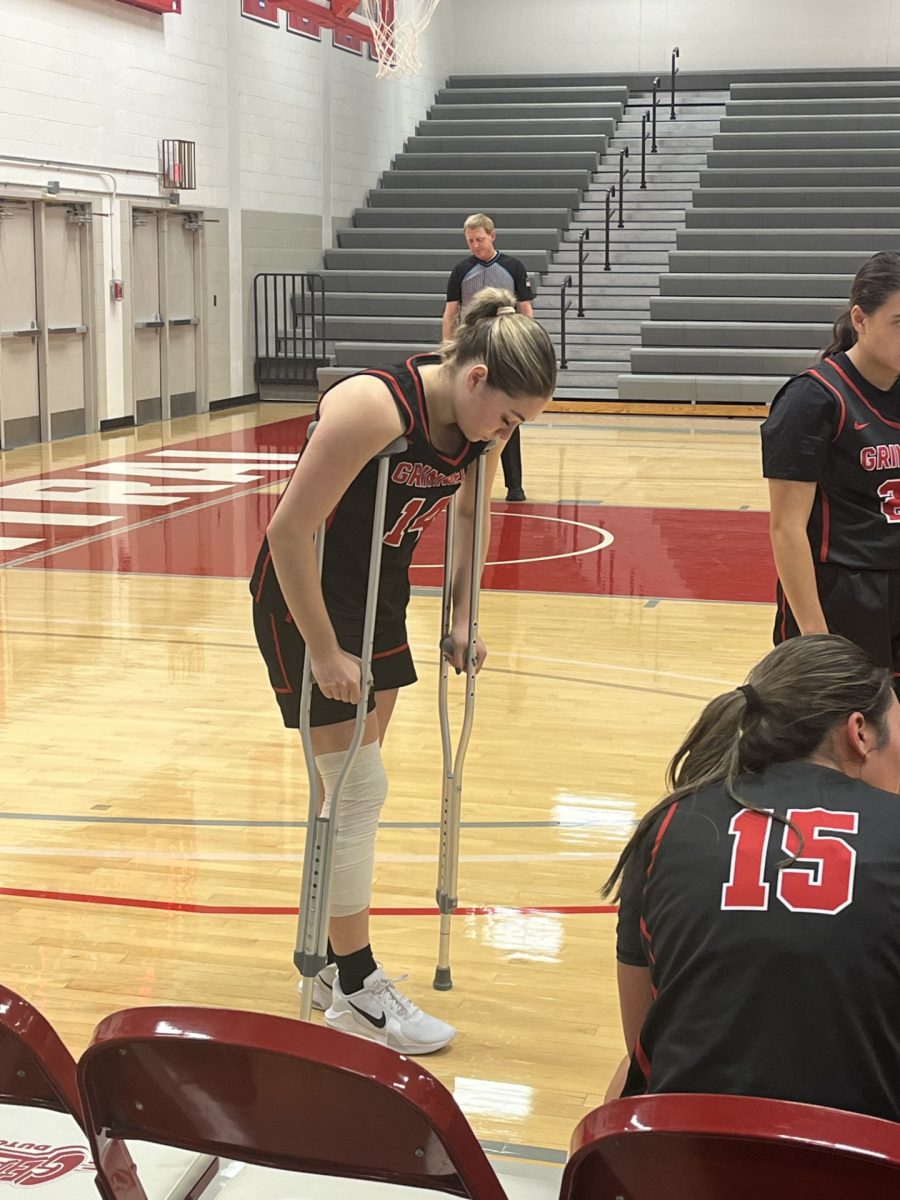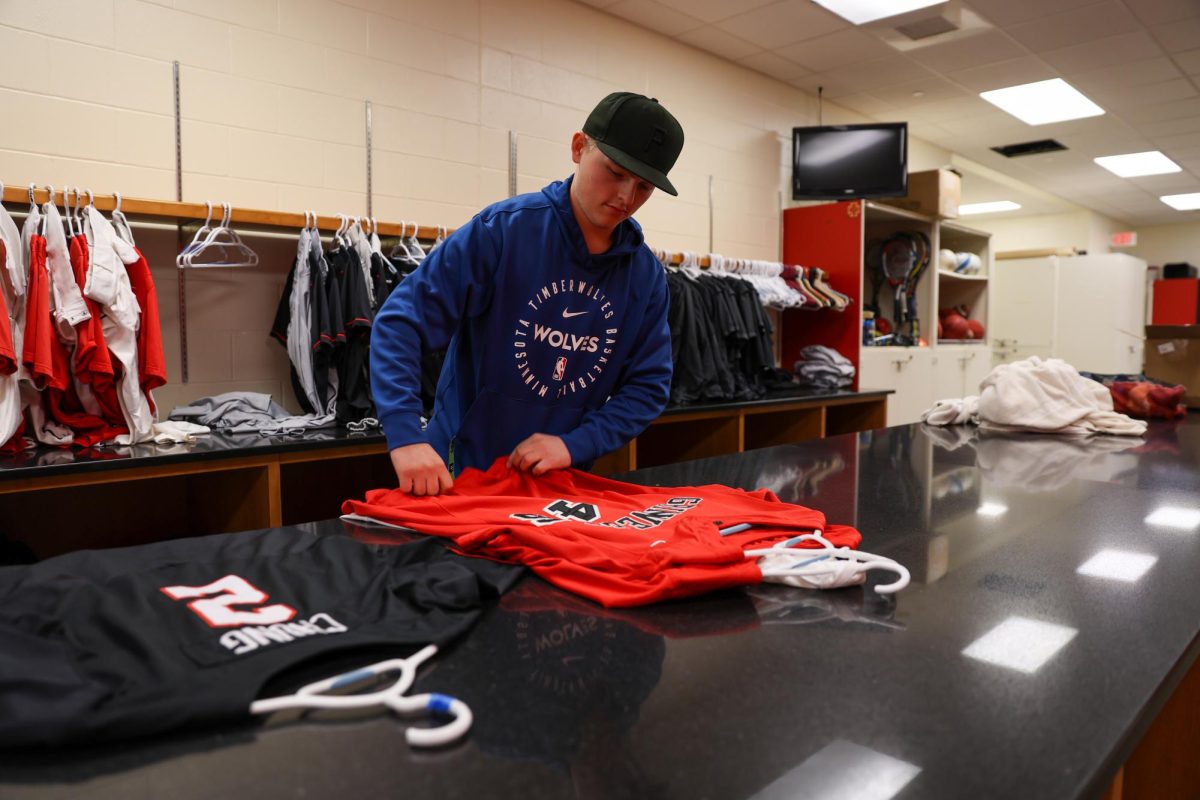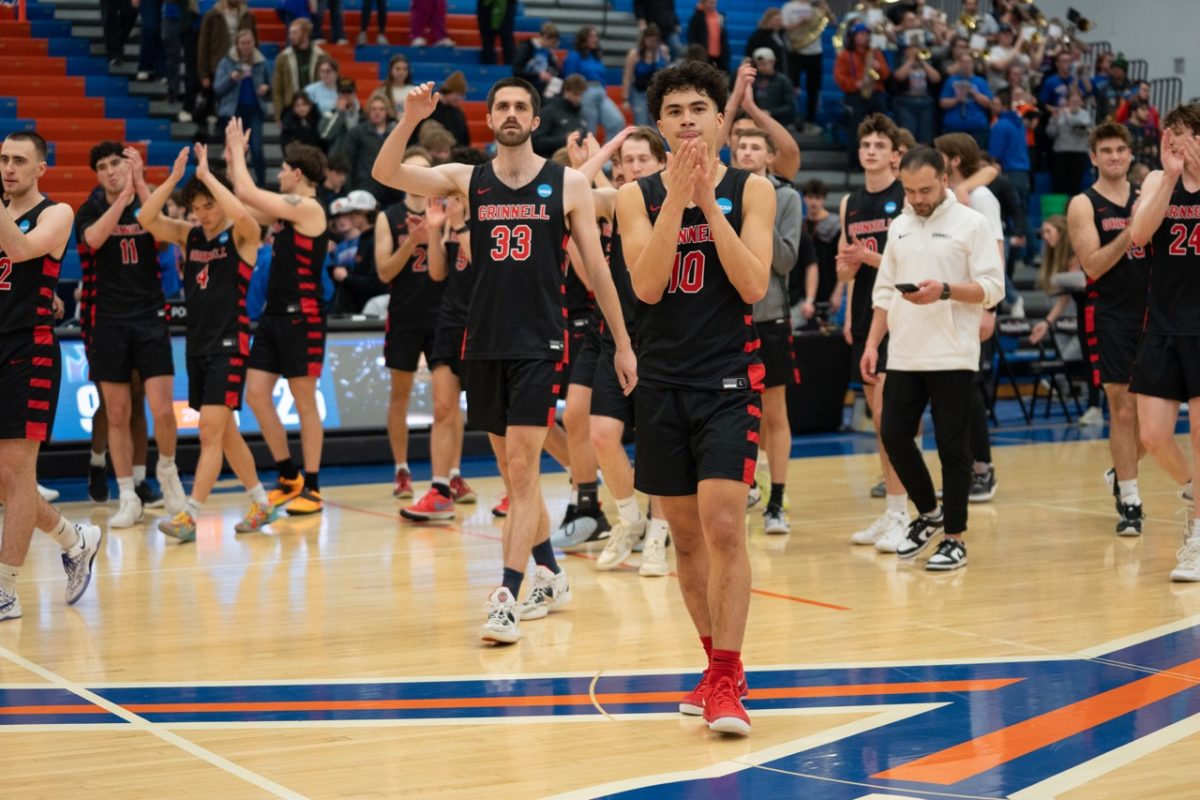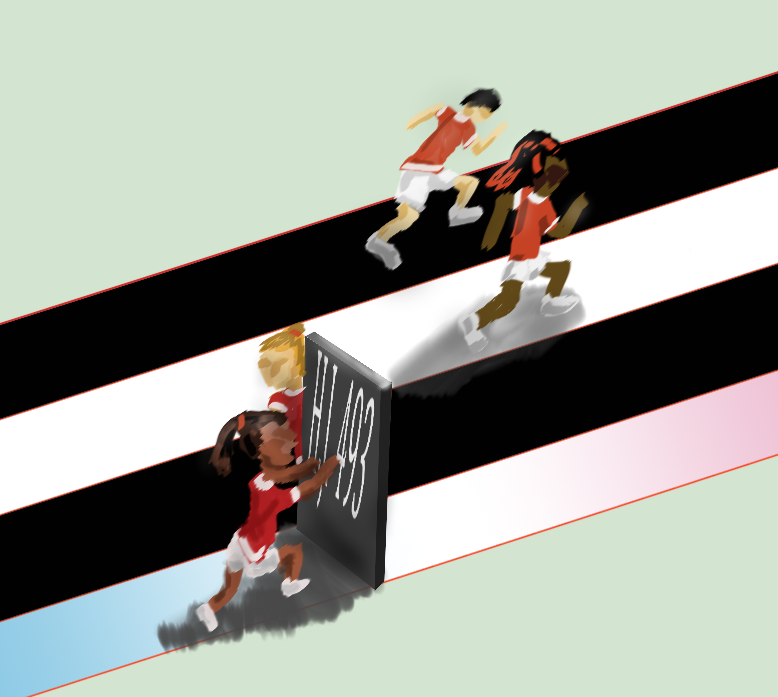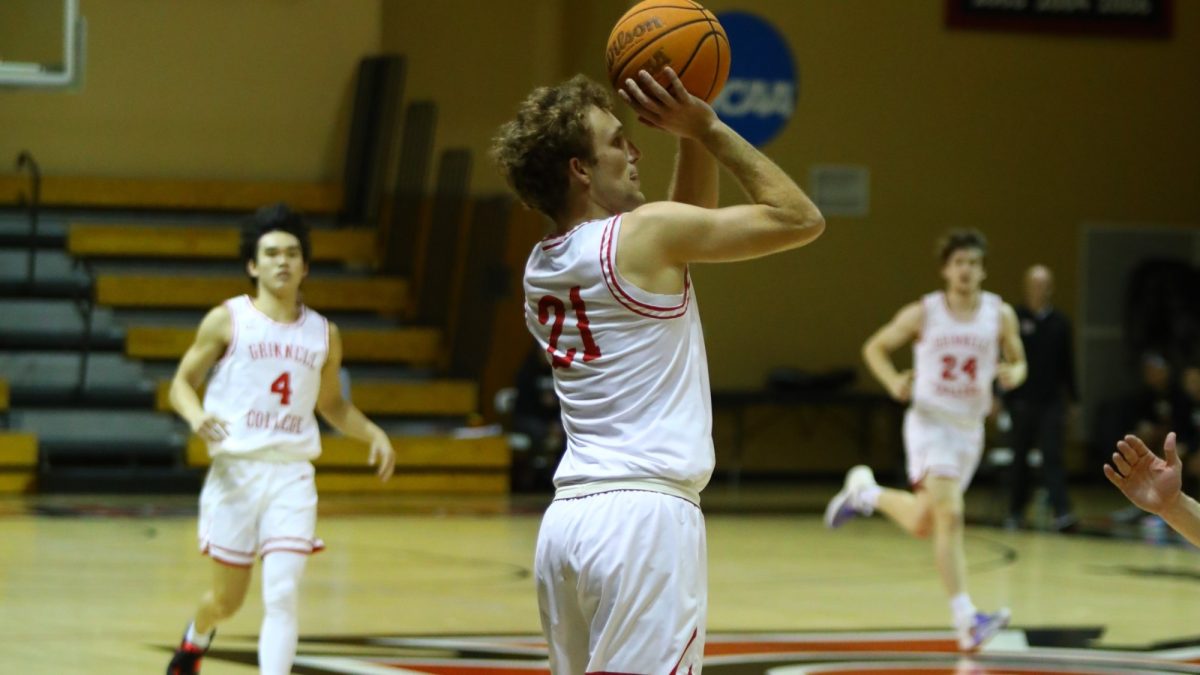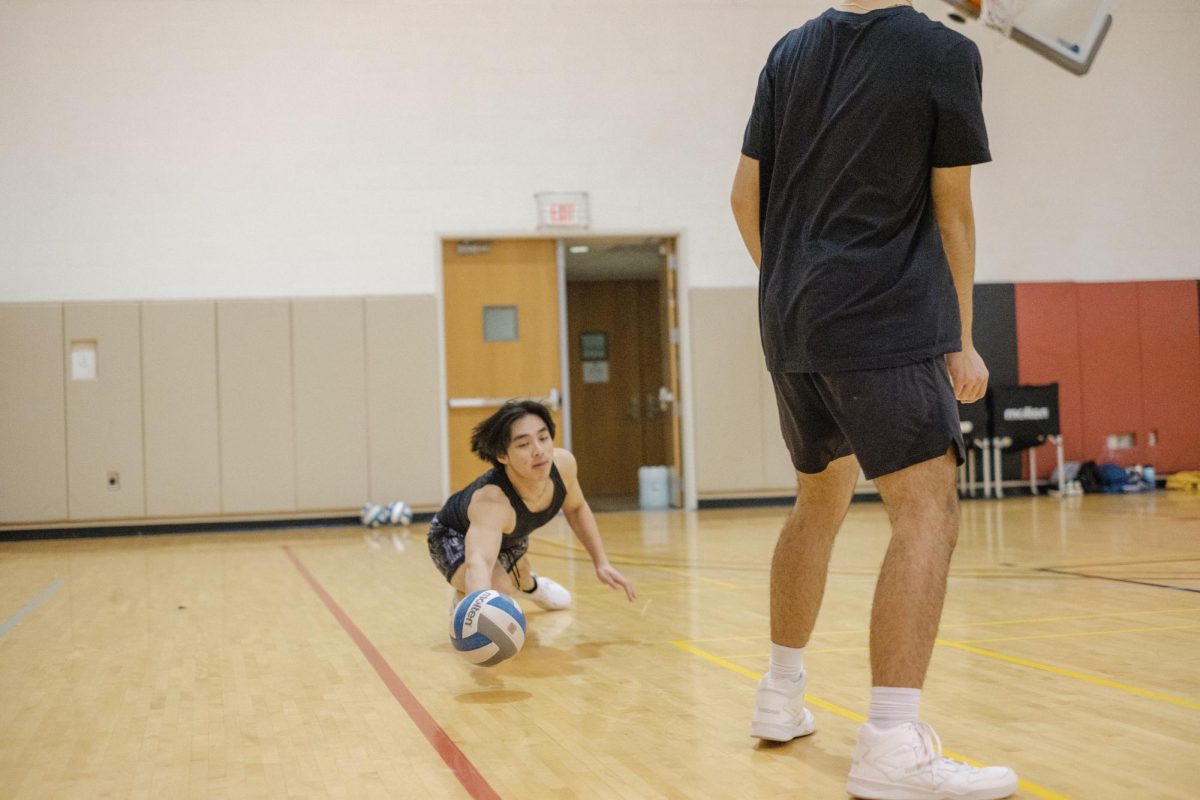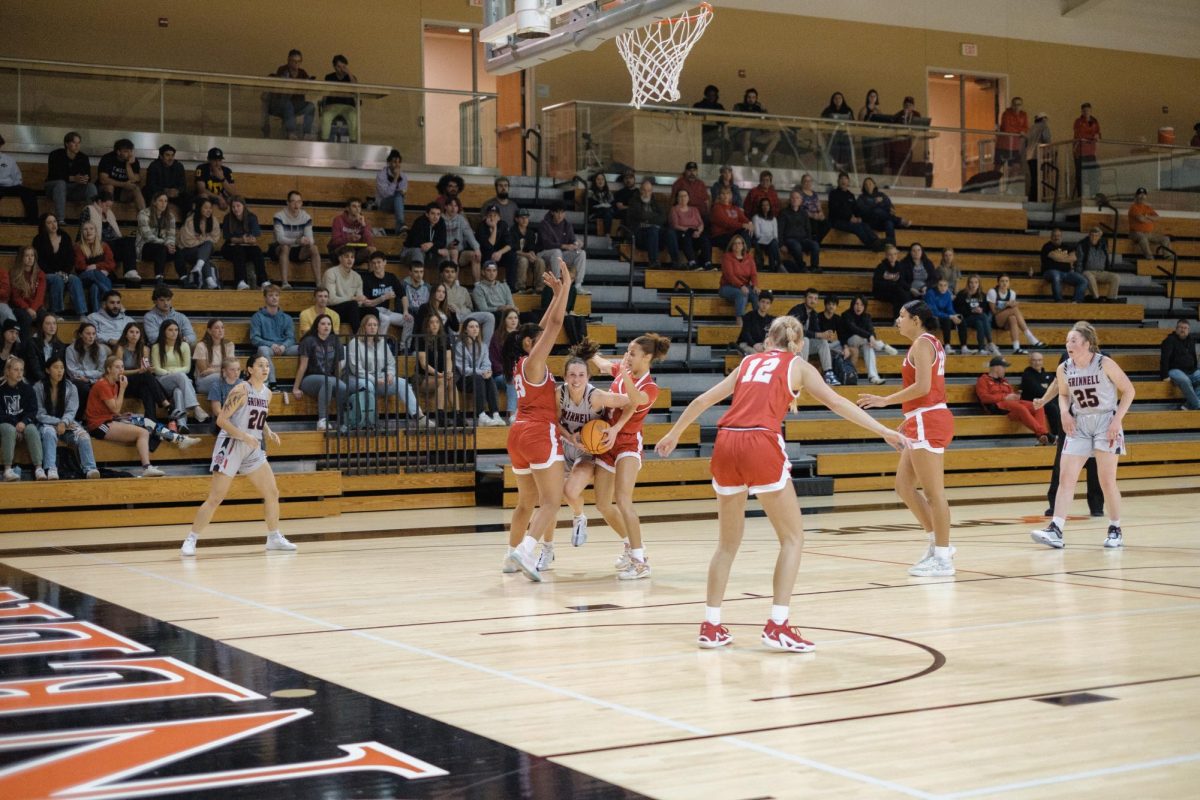Governor Kim Reynolds signed a law prohibiting transgender women athletes from participating in sports on March 3, 2022, Iowa House File 2416. The bill’s original draft only pertained to K-12 schools. However, an amendment was added to include all private and public colleges and universities in Iowa, meaning Grinnell’s varsity athletics fall under the bill’s jurisdiction.
The new law poses a threat to the demonstrated commitment to inclusivity in Grinnell’s athletic program, which created a transgender athlete non-discrimation policy in 2014 that prohibits discrimination on the basis of sexual identity and promises to provide equal opportunity to transgender athletes.
Senator Dawn Driscoll, who represents Grinnell in the State Senate, voted in favor of the bill. According to the Iowa Capital Dispatch, Driscoll “said it was ‘so unsettling’ to think the fairness of those sports may be ‘constantly taken away from them’ by transgender competitors.” Representative David E. Maxwell, Grinnell’s representative in the State House, was marked absent or not voting.
Within 12 hours of the bill ‘s passing in the House, President Anne Harris reached out to Athletic Director Andy Hamilton to inform him of the potential repercussions. When the bill was then signed into law on March 3, President Harris sent a school-wide email which stated:
“This legislation contradicts our Grinnellian values. Our nondiscrimination policy explicitly states that we will not discriminate based on sex, gender, gender identity or gender expression in access to and participation in our educational programs, services, and activities. This policy complies with Title IX of the Education Amendments of 1972.”
The College athletic department held a meeting to discuss the possible implications of the bill. However, the way the bill will affect Grinnell College athletes remains uncertain. Right now, the College does not plan to change any practices or policies, and to continue to monitor legal changes to the legislation.
“As the director of athletics, I potentially foresee a problem. So, we’re going to continue to use inclusive practices for trans identified athletes. And those practices are consistent with the core values of the college and consistent with the values that we have in our department,” said Hamilton.
Kirsten Koester, head coach of women’s soccer and Grinnell’s senior woman administrator, echoed this sentiment.
“I think everybody in this office would want people to know that we’re going to do everything in our power to support our trans female athletes. We think this is unjust and they deserve our support, but we just don’t know everything. And that makes it scary for us, and it makes it scary for them,” she said.
Hamilton said as he currently understands the bill, trans women will not actually be barred from competing; every college will be able to create their own policy. However, if a female trans athlete does choose to compete, they are putting themselves, their coaches and the College at risked of being sued. If a fellow team member or a member of a competing team suspects an athlete to be trans, they may open an investigation to sue the suspected trans athlete.
The College has no existing rule stating that athletes must reveal their assigned gender at birth or whether they have transitioned, and HIPAA prevents trainers from revealing an athlete’s gender identity. Even if this practice continues as the College plans, fellow teammates or competing teammates and coaches can question other athletes’ gender identities.
It follows then that the bill has the potential to affect not just trans athletes, but any individual who may be accused of being gender non-conforming. The ambiguities surrounding the bill’s enforcement remain to be sorted out before a lawsuit has been filed.
The bill currently uses Title IX as justification, claiming that transgender women are genetically men, and therefore take a woman’s spot. However, some view the law as a violation of civil rights.
“No matter what, you’re going to be screwed because you’re either in violation of civil rights, because the law is probably in violation of civil rights. But, the way they worded it, it’s based under Title IX. So, you’re either in violation of Title IX according to the Iowa law, or you’re in violation of basic civil rights,” said Koester.
The NCAA states that trans women athletes may continue to compete on a men’s team, or they can compete on the women’s team, but only after completing one year of testosterone suppression treatment. The Iowa bill contradicts this rule, as any trans woman can be sued at any point, regardless of hormone treatment.
In addition to athletes, coaches and the College risk of being sued, the NCAA may face legal ramifications as well. One potential repercussion could be revocation of the College’s permission to host athletic competition by the NCAA.
“The NCAA has pulled out of hosting in states that have different transgender laws that don’t align with what the NCAA believes or promotes within their athletic group. So, we kind of talked about that a little bit in our department meeting. Like for women’s basketball, they hold some NCAA bracket sections here in Iowa. Will the NCAA pull those out and give it to another state? It might limit where competitions can happen,” said Head Cross Country Coach Sarah Burnell `14.
Some have expressed fears of how the legislation will affect student’s sense of safety and belonging both on and off sports teams, regardless of the institution’s stance on the bill.
“It would be horrible if people didn’t want to come here because they felt like they couldn’t be themselves,” said Burnell. “I think that’s a huge loss for us.”
Hamilton said that prioritizing students’ wellbeing trumps athletic success. Beyond fairness, Grinnell coaches said they feel the bill will prevent students from being able to fully engage with the college experience.
“I think athletics in sports is so much more than just the competition. It’s the community building, the confidence building, getting stronger, all the skills and things that you learn that you use in life beyond sports,” said Burnell.
“Winning is fun, all that stuff is fun, but that’s not the purpose. And I think by having a ban it prevents people from being able to participate and have access to some of those key things that can be really important to a person’s life and experience.”
The crux of House File 2416 surrounds a nationwide debate on the advantages athletes assigned male at birth may have over athletes assigned female at birth.
As Reynolds sat at her desk ready to sign the bill, she remarked that the bill was “a victory for girls’ sports in Iowa. No amount of talent, training or effort can make up for the natural physical advantages males have over females. It’s simply a reality of human biology. Forcing females to compete against males is the opposite of inclusivity and it’s absolutely unfair,” she said.
Reynolds’ statements have stirred debate on the efficacy of the binary team structures.
“The law is intended to try to protect other women in sports, which in and of itself is a good thing. Title IX helps protect women and give them value and give them opportunities. But it’s going too far now, are we really using it to take away opportunities from people? How do you create a gender-neutral experience without it just being filled with men?” said Burnell.
“I think this is just the beginning. We need to rethink sports. Do you have a men’s team, a women’s team and a gender-neutral team? Are there three teams for every year? What does that look like? What are the rules around that? I don’t know. Probably depends on the sport. Maybe we just have gender-neutral teams. I don’t know what that looks like. But how do we create it where it’s inclusive while still making sure everybody can participate and participate at high levels and feel valued?”
While House File 2416 is the first of its kind to collide with sports in the state of Iowa, it remains only a small piece of a large legislative wave crashing upon the U.S. In fact, this year alone 12 states have passed similar bills, with 13 more states currently reviewing trans athlete sports bans.
Though ambiguity remains a leading factor in the implementation of the bill, the Grinnell College athletic community remains steadfast that sports are uncontrovertibly inclusive of all.
“Sports affirm our identity, build community, and cultivate a sense of belonging,” said Koester.





















